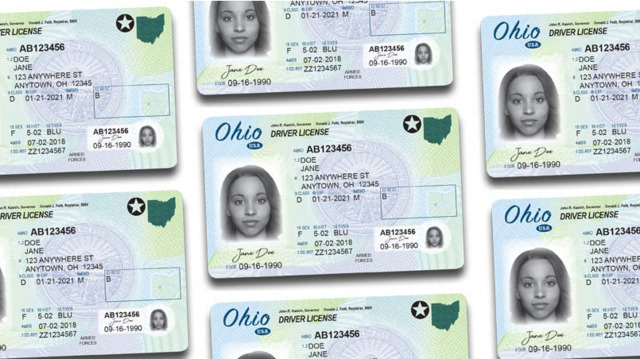The State of Ohio's Bureau of Motor Vehicles must end practices denying driver's licenses to some state residents with refugee status or those whose parents are undocumented, a federal judge ruled in separate but related cases Feb. 20.
The case about those with undocumented parents — brought by a local nonprofit — included Cincinnatian Karena Cabrera, a U.S. citizen who was denied a license because she was under 18 and because her parents are undocumented.
“I called my cousin and I told him the news," Cabrera said today. "The reaction on his face was priceless. It seemed as if wings had regrown on him. He’s sixteen and now he’s able to get his driver’s license and so will his siblings.”
Roughly 3,100 teens could be affected by the ruling, attorneys estimate.
U.S. Southern Ohio District Court Judge Edmund Sargus in two summary judgements called Ohio's policies unconstitutional and ordered the state to cease denying driver's licenses to residents with refugee visas more than two years old and to discontinue turning away otherwise eligible applicants for driver's licenses who are 16 or 17 years old because their parents can't cosign due to their immigration status.
In both cases, Ohio argued that it cannot supply those licenses because it must comply with the federal REAL ID Act, which sets federal standards for driver's licenses in the 24 states that opted into that program so that their state IDs can be used for air travel and other purposes. One of those standards is requiring applicants to prove they have "lawful status" in the United States.
Plaintiffs in the class-action suits filed by northeast Ohio nonprofit Advocates for Basic Legal Equality were several refugees who were denied driver's licenses and the central Ohio nonprofit Community Refugee and Immigration Services (CRIS) for the refugee suit and Cincinnati-based Intercommunity Justice and Peace Center (IJPC) along with minors with undocumented parents who had been denied driver's licenses for the other suit.
Those groups argued that the state's policies were unconstitutional, created invalid sub-groups of refugees and immigrants outside federal classifications and are not necessary to comply with the federal REAL ID Act.
Sargus batted away the state's claims and agreed with the plaintiffs.
"The registrar's reliance on the REAL ID Act to support its argument is misplaced," the court's decision in the refugee case reads.
The judge came to a similar conclusion in the case brought by IJPC.
"As defendant acknowledged, the REAL ID Act does not, however, impose requirements for a co-signer of a driver's license application," Sargus wrote. "Ohio would remain compliant with the REAL ID Act even if it terminated the policy and allow parents and legal guardians to co-sign for minors without documents showing legal presence."
Nonprofits who represented refugees and immigrants in the cases applauded the decision.
“All refugees should be able to obtain driver’s licenses and state IDs so they can fully participate in their new community,” CRIS Executive Director Angela Plummer said in a statement following the ruling. “We are thrilled that the court has lifted one of the barriers to opportunity faced by our refugee clients, and we hope to have a positive relationship with the BMV going forward so that all who are eligible for an Ohio driver’s license may obtain one.”
IJPC held a news conference today discussing the court ruling at the Peaslee Center in Over-the-Rhine.
"We take for granted how much power a driver’s license grants you, to be able to move freely and go about your life,” IJPC Executive Director Allison Reynolds-Berry said.






